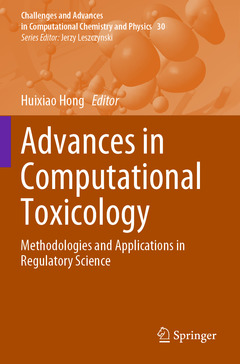Advances in Computational Toxicology, 1st ed. 2019 Methodologies and Applications in Regulatory Science Challenges and Advances in Computational Chemistry and Physics Series, Vol. 30

Offers a comprehensive review of the methodologies that are currently used in computational toxicology
Illustrates practical applications of computational toxicology in regulatory science
Introduces emerging methods in computational toxicology, such as deep learning
Date de parution : 08-2020
Ouvrage de 412 p.
15.5x23.5 cm
Date de parution : 06-2019
Ouvrage de 412 p.
15.5x23.5 cm
Thèmes d’Advances in Computational Toxicology :
Mots-clés :
Computational Toxicology; Regulatory Science Toxicology; Machine Learning Toxicology; In Silico Toxicology; Deep Learning for Toxicity Prediction; Deep Learning Toxicology; Toxicity Prediction; Toxicity Modeling; Toxicity Analysis; Toxicology Simulations; Database Toxicology; Toxicogenomics; Endocrine Disruptors; Mixture Toxicity; Regulatory Science



